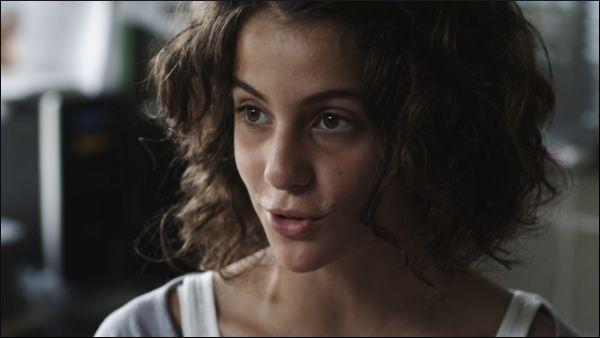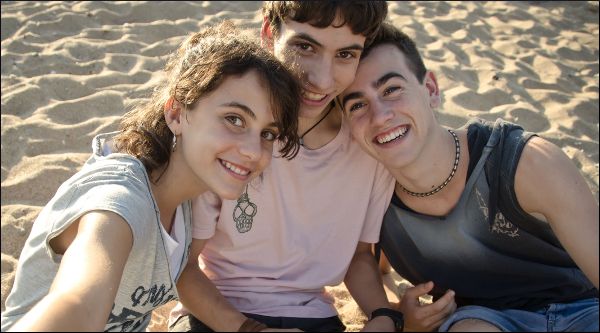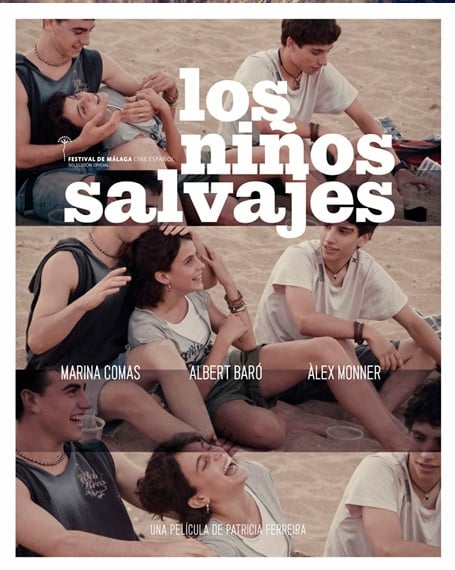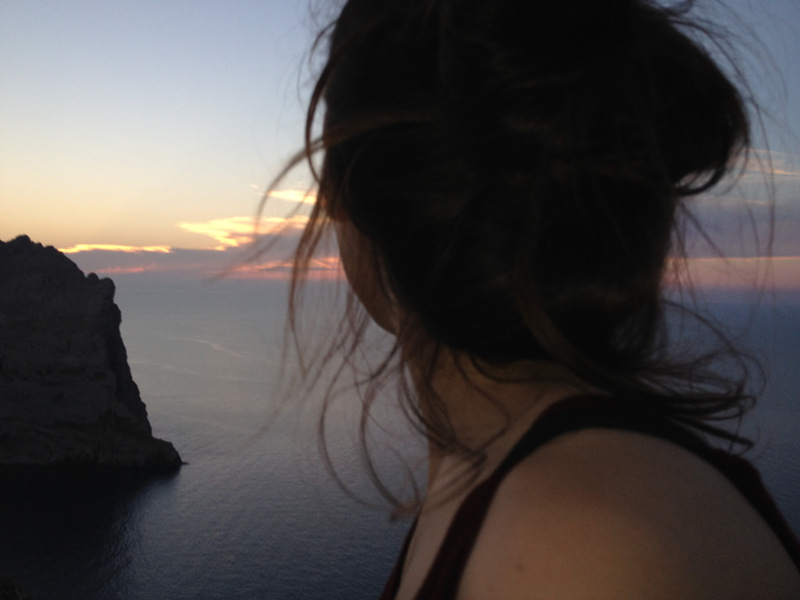Many filmmakers seem to fear working with kids on a set. Despite the risks, director Patricia Ferreira, in The Wild Children (Els nens salvatges), chose to work with some of the most talented young actors in Spain, especially Marina Comas and Àlex Monner, who have recently starred in the acclaimed Black Bread and Rec 3, respectively. The two young Catalan actors, along with Albert Baró, are a trio of wild teenagers who demonstrate exactly what it means to become an adult today. Quite soon, we understand why these classmates from such different backgrounds get along so well: since their lack of communication with their families runs their lives, they decide to gather together and face the world of adults formed by their parents and teachers.
This film displays the contradictory feelings these kids have while growing up on the outskirts of Barcelona. Because of their loneliness, they are introduced separately, each with their own story: Àlex (Àlex Monner) is a graffiti-lover, whose working-class family cannot support him as it undergoes severe financial problems; Laura/Oki (Marina Comas) is the only daughter in a stressed family, and when things go well and she receives presents, she feels it’s blackmail to force her into becoming what she is expected to; and Gabi (Albert Baró), burdened with an aggressive father and depressed mother, bears responsibility for his younger brother.
"Patricia Ferreira, in The Wild Children (Els nens salvatges), chose to work with some of the most talented young actors in Spain."
As we become familiar with these kids, we can feel that something is wrong, an impending doom. The fact that the three main characters are partially introduced while being interrogated by the police provides suspense, which only gets resolved in the last sequence. Although the storyline is brilliantly spread out in a way that spectators can make their own guesses about the main plot, it is perhaps a shame that this surprising end reminds us that we are watching a film. Even if the story was inspired by real facts, the truth shatters the patiently-built realism of the whole picture.
However, this movie is a good attempt to approach what it is to be a teenager today in Spain. Fresh and outspoken, as well as clueless and naive, this is how future adult generations grow up in a country ruled by an economic and social crisis, where both corruption and social criticism fill the daily papers. The Wild Children is also a good illustration of how a bilingual community works. Whereas Oki has no Spanish background in her life, both Àlex and Gabi speak Spanish at home, although they are perfectly able to change into Catalan at any point, it being the language they use to communicate with friends.

A perfect example of the colloquial language used by the youngsters can be heard during a sequence in which they share a popular “botellot” with some friends, an open-air drinking session. Over flirting and fighting, their conversations are full of “flipa!” (to go mental or flip out about something), “està rallat” (to be pestered or harassed), or “està mamat” (to get drunk). We can also hear quite a complete list of “paraulotes,” or swearwords, including the common “malparit,” which is translated as “bastard” although it literally means “miscarriaged.”
"If The Wild Children has a moral, it is how terrifying it can be for a kid to not be understood, supported, or even noticed."
Moreover, one of the most curious features of the film in terms of language is the character of Lola, the History of Art teacher. Because she comes from Majorca, a small Catalan-speaking island in the Mediterranean, one can notice the differences in her accent and vocabulary. If one pays attention, one might hear “tassó” instead of the standard Catalan “got” to designate a glass of water. Shortly after that, she mentions “al·lot,” the Majorcan word for boy, which in standard Catalan would just be “noi.” As a gesture to those who have noticed her accent, she also jokes about how the students call her by the nickname of “Ensaïmada,” for the spiral-shaped pastry typical of the island.
These kids have no terms of endearment. In fact, most are said by the adults: “Hola, amor” (Hello, sweetheart) or “Bona nit, reina” (Good night, darling; although “reina” is literally “queen”) are some of the phrases the parents use to refer to their children. This is contradictory, since, although the parents use such terms, their overall role in these teenagers' lives is as a source of conflict. If The Wild Children has a moral, it is how terrifying it can be for a kid to not be understood, supported, or even noticed. This might be because of these families' lifestyles, because of this particular moment in time, or because of any other reason, but this film is determined to prove that these adults have a responsibility in the constant unease of their children, these adults-to-be. After all, the film appears to be promoting the idea that the latter’s hopelessness is just the result of their lack of chances. While the kids must deal with this pursuit of hope, someone should be helping them by giving them more opportunities.





